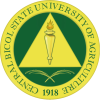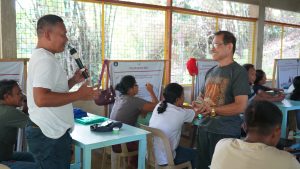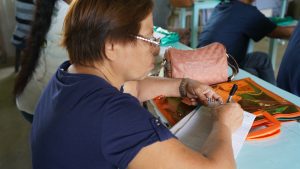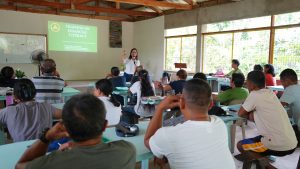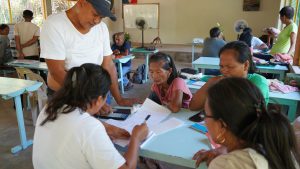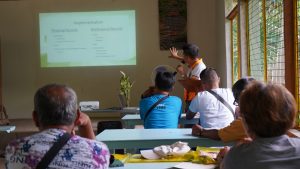The Christian Farmers Training Center (CFTC), in partnership with the CBSUA-College of Economics and Management (CEM), hosted a Financial Literacy and Management Training on May 30–31, 2024, at the CFTC premises in Cabinitan, Ragay, Camarines Sur. The event focused on producing high-quality inbred rice, seed certification, and farm mechanization.
Implemented under the Rice Competitive Enhancement Fund (RCEF), the training aimed to strengthen the adoption of certified inbred seeds and integrated crop management practices. This initiative underscores the commitment of CFTC and CEM to empower the agricultural community through knowledge and skill development in financial literacy, farm management, and sustainable production.
Faculty experts from CBSUA-CEM, including Sonny Corporal and Cresilda Caning, served as resource speakers. They covered critical topics such as basic financial literacy, loan and credit management, and the “five CS/KS essentials” for successful agricultural entrepreneurship.
Dr. Manny Mendoza and Norma Mendoza, esteemed farm owners of the Christian Farmers Training Center, emphasized the importance of such programs in achieving sustainable agricultural growth and improving farmers’ livelihoods. “Through initiatives like these, we are not only improving our agricultural practices but also strengthening the financial acumen of our farmers, ensuring a more prosperous and resilient farming community,” said Dr. Mendoza.
Beyond agricultural productivity, the training contributes to improving access to basic services by enhancing farmers’ financial stability and income-generating capacity. Through strengthened financial management skills, local farmers are better equipped to secure food, clean water, proper housing, and other essential services for their families. By linking improved farm practices with financial literacy, the program supports farmers in achieving greater livelihood resilience and a higher standard of living.
This initiative aligns with Sustainable Development Goal (SDG) 1: No Poverty and SDG 8: Decent Work and Economic Growth, as it empowers farmers to break cycles of poverty, access basic services, and participate in inclusive economic development.|Report from Abigael Rose F. Bobis, ESD Staff

